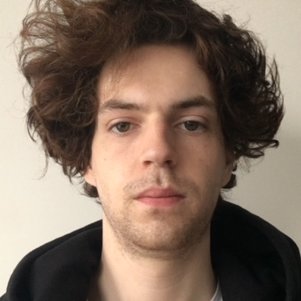Former Trainees
Luc Ponsioen
EngD candidate - Structural & Railway Engineering
My name is Luc Ponsioen and I'm a Coastal Engineer who gained his MSc degree at Delft University of Technology in 2016. After working for 5 years on multiple large coastal defence projects like the renovation of the Afsluitdijk, knowledge management on storm surge barriers and several dyke improvement projects, I got involved with the next big innovation in Civil Engineering: Digital Twins. Although the concept of digital twin itself is not new (there are industries in which it is already a common way of working) is it a relatively new concept in the world of Hydraulic Engineering. A digital twin could provide very interesting new insights in the (live) behaviour of hydraulic structures and help control the risk or extend the life span of the structures, which makes it a very interesting topic to further investigate.
To investigate the applicability of digital twin technique on hydraulic structures, or more specifically on storm surge barriers, I started the EngD program in September 2021. The goal of this EngD is to develop a working digital twin proof of concept of the Maeslantbarrier, in which the focus lies on developing the concept for the barrier's retaining wall. The digital twin is an environment that provides better insight in the actual behaviour of the barrier, which on itself provides a more accurate insight in the barrier's risk management and can simulate how external factors (like the maintenance strategy of the barrier) could contribute in lowering this risk.
The project is a collaboration between Rijkswaterstaat, TU Delft and Aveco de Bondt. Within the project intensive collaboration with several engineering consultants, contractors, PhD students and MSc graduate students is sought to form a bridge between science and practice.
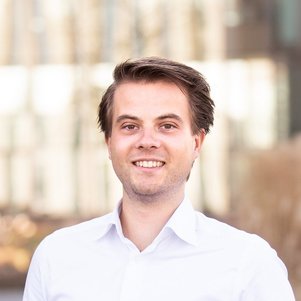
Luc Ponsioen
Erik Kraaijeveld
EngD candidate – Sanitary & Environmental Engineering
Translating scientific approaches to practice and working on the implementation of technologies in the field of water treatment has become a passion of mine in the last years. The combination of research and engineering allows me to work in an environment with a lot of freedom and develop technological solutions for existing practical problems. Both of these skills I developed during my years at the TU Delft, where I started in 2016 with a Bachelor in civil engineering and followed-up with a Master in Watermanagement. Within my Master programme I focussed on courses and projects related to urban water and sanitary engineering. For my thesis I worked on integrating an iron-electrocoagulation (Fe-EC) system within biologically active rapid sand filters to enhance the removal of arsenic. This storyline continues during my EngD, as I focus on the implementation of technologies in the field of drinking water treatment.
My EngD started in September 2021 and has the opportunistic goal of reducing arsenic concentrations below 1 µg/L during groundwater treatment. The project relies on a close collaboration between the TU Delft and Dunea; a drinking water company in the The-Hague region providing water to 1.3 million customers. The overall idea is to combine the innovative knowledge of the TU Delft with the practical perspective of Dunea. As if setting this < 1 µg/L objective is not ambitious enough, we want to obtain this goal without the use of excessive amounts of chemicals and energy. To show applicability of our ideas we will work on the implementation of small pilot systems and evaluate our outcomes (considering sustainability, scalability, costs etc.). Reaching this objective on my own is impossible, so besides the great support from the Dunea team I work closely together with my PhD-postdoc colleagues and my supervisors; Doris van Halem and Jan Peter van der Hoek.
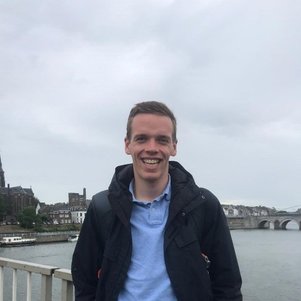
Erik Kraaijeveld
Karim El Laham
EngD candidate – Structural & Railway Engineering
I have always been fascinated with numerical modeling and data analytics techniques. This is counterintuitive as I studied Civil Engineering at the American University of Beirut, and then did a master's in Structural Engineering at the TU Delft. The golden opportunity came when I took the course Elements of Railway Engineering taught by Dr. Valeri Markine as part of the Railway Specialisation. During this course, we had to measure some accelerations on our phones in the train voyage from Delft to Den Haag. We had to analyse said data and relate it to engineering knowledge as to gather some insights. I knew immediately I wanted to work with railway data and try to develop methods and tools to be able to take the railway industry to the next step. I was hired by Fugro to do exactly that, with the data that they were gathering using RILA. I made a tool to detect when maintenance occurred and on which sections. The management liked it, so I was later hired to work on my thesis with them, which basically tackled creating a machine learning predictor for rail track quality using structural elements as features (subsoil type, transition zones, etc...).
After graduation, I decided to work with Fugro and enroll in an EngD programme at the TU Delft. My project, is to combine different datasets from different stakeholders in the railway industry and try to analyse the effect of structural parameters on track degradation.
In short, many engineering companies in the Netherlands have precious data that can tell us something about how the railway track is behaving. These companies almost never collaborate and share data to create insights from which the entire railway industry can benefit. My project will use data already available at Fugro all the while attempting to extract the datasets that each company holds dear as to create insights that can benefit us all.
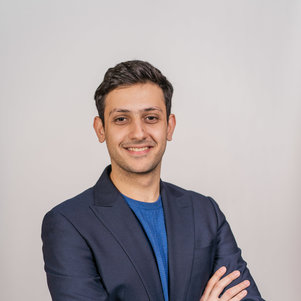
Karim El Laham
Aulia Tirtamarina
EngD candidate – Sanitary & Environmental Engineering
Aulia Tirtamarina was born in Surabaya, Indonesia. Ever since her childhood she has always been fascinated with civil engineering work. It was an easy decision for her to choose for a bachelor degree in civil engineering in Surabaya. By the end of her bachelor, she got more and more enthusiastic especially about water management. In 2007 she received a joint scholarship from the governments of Indonesia and The Netherlands for a double degree in Groningen. The scholarship provided the perfect opportunity for her to fulfil her wish to study abroad and experience how people in other countries live and work.
Aulia had planned to go back to Indonesia to contribute to her country. But her destiny brought her to stay and build a family in the Netherlands. Therefore she decided to pursue her master’s degree at the University of Groningen and she completed her thesis about freshwater strategies in the IJsselmeer area, for which she also did an internship at Rijkswaterstaat. The thesis also grew her interest in drinking water management.
In 2012, soon after finishing her master’s thesis, she started working as a trainee at WMD Drinkwater B.V., the drinking water company of the province of Drenthe, the Netherlands. After her traineeship she continued working at the company as an advisor, working on projects concerning the asset management of the pipe networks of WMD. One of those projects was the pressure management programme in 2014. The pressure in the whole network was reduced with an average of 5 mwk to reduce the number of Asbestos Cement (AC) pipe bursts in Drenthe. The number of breaks in AC pipes was reduced significantly. However the number of pipe breaks per kilometer still increases every year. This means that the pressure management programme is not the final solution to the AC pipe burst problem. Replacing the right asbestos pipes at the right moment is therefore crucial.
In 2020, with the support of WMD, she started with the EngD project at the TU Delft. The purpose of the EngD project is to provide an alternative, risk-based methodology for the asbestos pipes replacement prioritisation. The EngD project will try to predict burst frequency and assess pipes based on its impact, so that WMD can implement a more proactive approach within the pipe replacement program. During the EngD project a methodology for assessing the consequences of pipe bursting will also be developed. After that, based on the probability of burst and the consequences of pipe bursting, pipes will be ranked to help WMD to make a better prioritisation for keeping the number of pipe breaks and Customer Minutes Lost (CML) low in the future. Ideally this project will also be of help to other (water) companies with comparable problems.
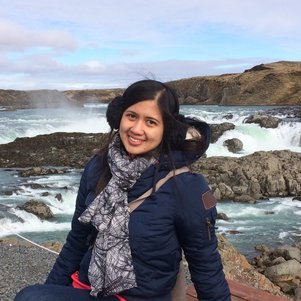
Aulia Tirtamarina
Joshua Gallegos
EngD candidate - Sanitary Engineering
Joshua Gallegos hails from the southern end of the Rocky mountains in the southwest United States. He started his career in the earth sciences at the US Geological Survey working with surface water management, and later, with seismological research. Upon completion of a Bachelor of Science focused on climate science and earth processes at the University of New Mexico, Joshua spent some years implementing sustainability metrics into operations of large government R&D facilities. In 2012, he and his wife resigned from their professional roles to volunteer in Southeast Asia with the United States Peace Corps where they spent more than 3 years working on initiatives ranging from HIV/AIDs education to anti-corruption and environmental management.
In 2015, Joshua came to Europe on scholarship of the International Master of Science in Environmental Technology and Engineering (IMETE) program funded by the European Commission and coordinated by Ghent University, Belgium; The UNESCO Institute for Water Education, Delft (now IHE-Delft), the Netherlands; and the University of Chemistry and Technology Prague, the Czech Republic. After completing MSc research establishing an innovative nature based pilot water treatment system at the Technical University of Munich’s Chair of Urban Water Systems Engineering, Joshua received a joint MSc from the Belgian, Dutch, and Czech institutions in 2017. The following year, he started a consultancy called SPINDLEAXIS in Prague which focuses on creating a cohesive picture of how sustainability is relevant for businesses, how ecosystem awareness and the exploding field of environmental technologies can be leveraged to make organizations more competitive, and how systems thinking at the municipal scale can be used to make people healthier and happier.
Joshua’s professional interests lie at the intersection of sustainability as a movement and the application of environmental technologies which enable a more synergistic relationship between human society and the global ecosystem. He has joined the EngD programme at the Delft University of Technology to work with the Delft-based water technology start-up company: Field Factors. The subject of the Field Factors design project is characterization and optimization of treatment capacities of their proprietary multi-stage rainwater capture, treatment, and storage systems through implementation at four locations. The larger goal connecting Joshua to the founding members of Field Factors, is to enable systemic decentralization of urban water management improving water resource utilization, while addressing issues of urbanization such as insufficient groundwater recharge, heat island effects, seasonal water deficits, lack of green space and biodiversity, and the need to create spaces which have positive effects on the human mind.
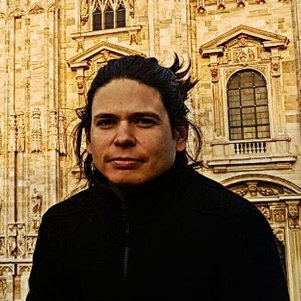
Joshua Gallegos
Nessia Fausta
EngD candidate - Sanitary Engineering
Nessia is a civil engineer turned into water treatment field. She was born, raised and completed her bachelor study in Bandung, Indonesia. Being a project runner in an integrated engineering – procurement – construction company for industrial plants developed her passion in wastewater treatment and led her to pursue her master degree in TU Delft, where she conducted her thesis project to assess possibilities of wastewater reuse for concrete production industry in Maputo, Mozambique.
In 2020 Nessia started her EngD traineeship. She is now involved in AdOx project, a novel technology for removing potentially hazardous organic micropollutants from the wastewater effluent using adsorption with high-silica zeolite and regeneration with ozone gas. This synthetic zeolite is a proven selective adsorbent for the micropollutants. In order to carry out a continuous cycle in a downstream fixed-bed reactor, the zeolite (in powder form by default), is converted into wear-resistant granules or pellets and after they are saturated, the regeneration using in-situ ozone gas injection takes place. Oxidation of the micropollutants by ozone is also proven without the loss of the zeolite’s adsorption capacity. Based on these promising lab-scale experiments, Nessia’s main task is to deliver a pilot plant to combine the coupled mechanisms: adsorption and regeneration, in a complete cycle at a dedicated wastewater treatment plant to become a proof-of-practice. This includes the design, construction, operation and measurement, where the result will be the basis of full-scale application. The piloting phase will also confirm the expected advantages of AdOx: low treatment cost, energy use and environmental impact.
Feel free to contact her for more information, discussions or collaborative opportunities.
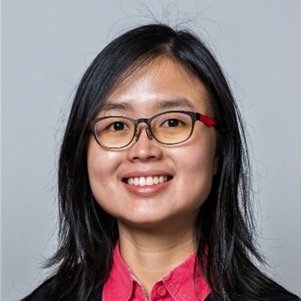
Nessia Fausta
Arthur de Boom
EngD candidate – Geo-Environmental Engineering
During my travels and in my time living abroad I developed a strong interest in the natural environment; In particular the interaction between soil and water has fascinated me. My choice for studying Earth Sciences in Utrecht was therefore an easy one. After doing an internship at a marine contractor I grew a sense of the engineering applications within the geo-environmental domain. Consequently this led me to Rijkswaterstaat, a large commissioning organisation in the field of, amongst others, hydraulic engineering. After 2 years of working on various projects I accepted the challenge to conduct a more in-depth research approach for an engineering problem that Rijkswaterstaat is coping with, which is the current topic of my EngD project.
In September 2019 I started my EngD project with the aim to find a solution for seepage of water from large canals in the Netherlands into the subsurface after maintenance works (dredging). A change in geohydrological regime could impose damage to property, failure of infrastructure and corresponding inaccessibility, flooding, drought and subsidence Therefore, Rijkswaterstaat is keen to get a (fundamental) grip on mitigating the effects of these issues. The intended maintenance project ‘Opwaardering Twentekanalen’ is experimenting with a new measure to tackle the unwanted flow of water from the canal into the subsurface by pouring a sand-bentonite mixture over the bottom of the canal. Initial scale-model tests with the mixture have revealed unexpected behaviour of the material, subsequently resulting in a desire for a better understanding of the soil mechanics and geohydrological processes, as well as an optimisation of the envisioned solution. In this EngD project an approach plan will be drafted, which aims at providing a universal roadmap for all canal maintenance projects in the Netherlands in which the project can easily define their project-specific requirements (technical-, safety-, economic- environmental, etc.), monitoring and provide toolbox with potential measures. The Twentekanalen will serve as a case study in this EngD project and doing so the envisioned solution for the Twentekanalen can be evaluated within this framework and compared to alternative solutions.
Over the coming 2 years I will take different material compositions into account and look at various execution methods in order to find the most effective solution. The optimisation process will be conducted through numerical modelling, lab testing and pilot scale testing. In addition to this, output of the mandatory courses (e.g. lifecycle costing, risk management scheme, economic evaluation) will support my findings.
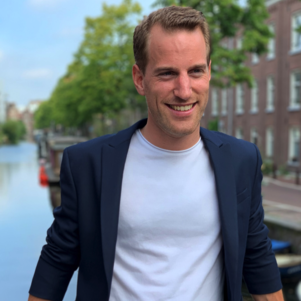
Arthur de Boom
Duncan Maagdenberg
EngD candidate – Structural & Railway Engineering
Duncan is an industrial design engineer. Born and raised in the Netherlands. Graduated Engineer in the master trajectory Integrated Product Design. He has an affinity with additive manufacturing techniques, on which he graduated for his master in 2019. During his studies he learned to think as a designer while understanding the works of engineers. Educated to convey research to form knowledge of a problem, utilise strategic design methods to come to fitting solution and develop concepts to a high level that is up to technical standards.
The EngD traineeship started in 2020. As a trainee for ProRail Duncan was tasked to add modularity to the Dutch railway network. In an initial research it was discovered that turnouts would benefit most from a modular system. The design cycle is used as the central method for the EngD project, a redesign of the crossing found in a turnout is proposed during this process. Various stakeholders are involved to guarantee the viability and feasibility of the new design. During the project, the entire lifecycle is considered from acquisition of materials to the end-of-life of the product, as well as all involved stakeholder needs and wants. By applying technology readiness levels (TRL), a realistic plan is made to go from the current level of readiness, TRL 3, to full commissioning within the Dutch railway network (TRL 9) in 10 years’ time. Duncan’s main goal is to improve the availability of track. The modular design presents the opportunity for alternative means of maintenance where replacement of the crossing can be done in 15 minutes, opposed to the current 4 hours required for this task.
Some keywords: Creative problem solving, Innovative ideation methods, Development and implementation, Design thinking, Prototyping, Simulation, Industry 4.0, Smart systems, Additive manufacturing.
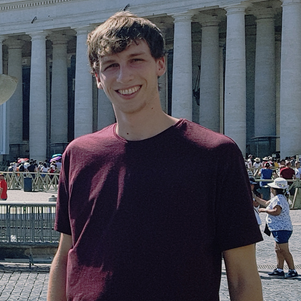
Duncan Maagdenberg
Mário Diogo Gonçalves Carvalho
EngD candidate – Engineering Structures
I am Mário, a Portuguese candidate at the EngD Structural Railway Engineering Programme. I graduated from the University of Porto in 2015, and obtained a Master’s Degree in Civil Structural Engineering, and I was previously working as a Junior Engineer in Jacobs-Belgium.
In this EngD programme, a collaboration between TU Delft and Dutch Infrastructure Manager - ProRail, we are aiming to deliver new countermeasures to improve the performance of Railway Transition Zones, areas between open tracks and engineering structures, know for experiencing abnormal degradation. Our goal is to increase lifetime of these areas by introducing new and alternative designs to tackle underlying problems.
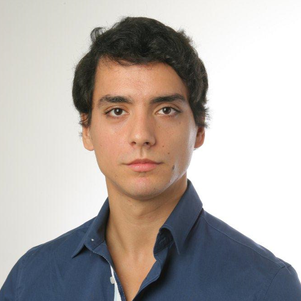
Mário Diogo Gonçalves Carvalho
Hamidreza Mojab
EngD candidate - Sanitary Engineering
Participating in a "spaghetti bridge challenge" during his high school, planted the seed of passion for engineering and design in his dreams. Hamid was born and raised in the city of Shiraz, Iran, where he obtained his BSc in Civil Engineering at Shiraz University. Upon completion of his Bachelor of Science, he was the member of a private engineering team, designing decentralized wastewater treatment systems for residential complexes. It was the starting point which formed his vision for sustainable development with focus on innovative solution for wastewater treatment.
In 2017, Hamid decided to pursue a Master of Science in Environmental Science and Technology at IHE-Delft. During his master, he was introduced to the concept of "Clean Production" which focuses on resource recovery, water reuse and zero waste. A promising solution to implement this concept is industrial effluent treatment via anaerobic digestion. Besides other benefits, this method also provides the production of green energy. He decided to practice the idea in real world and therefore, with collaboration of Veolia-Biothane, a leading company in anaerobic wastewater treatment, he formulated his thesis on the optimization of anaerobic treatment of high calcium content wastewater, generating from paper industries.
In 2019, soon after finishing his MSc, Hamid started the EngD programme to continue his journey in Environmental Engineering with more focus on design and practice. The core of his project, is the treatment of wastewater with extreme condition, such as toxic organic compounds, high temperature and high salinity, which is challenging for conventional biological treatment methods. A novel solution is to combine biological treatment with membrane filtration. Recently, Anaerobic Membrane Bioreactor (AnMBR) has raised interests due to its high efficiency for industrial wastewater treatment. This system has also been tested in lab-scale for treatment of such wastewater and now, after several years of research, Hamid and Evides Industriewater, are exploring the feasibility of the system in full-scale, by designing a pilot and full-scale AnMBR plant, for treatment of wastewater with extreme conditions.
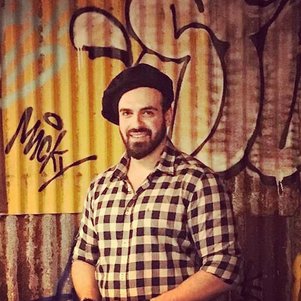
Hamidreza Mojab
Giacomo Bandinu
EngD candidate - Sanitary Engineering
Giacomo was born in Florence, Italy, where he got his BSc in Environmental Engineering. During his Bachelor, he developed his passion for water engineering. His interests focused mostly on innovative technologies to tackle issues related to water treatment and sanitation.
Led by his interests, he decided to start an MSc in Sanitary Engineering in TU Delft. Besides his study, during his master, he collaborated in water-related projects with local engineering firm (Evides Industrie Water) and the Dutch embassy in Myanmar. He also worked with the Sanitary department in the organization of the course Industry water. In January 2019, he concluded his MSc cum laude with a dissertation on an electrochemical ammonia recovery system.
Exactly one month after his graduation he started working as EngD trainee in TU Delft. In his individual project, he cooperates with Yara for the development of an innovative system for the recovery of nitrogen from industrial wastewater streams.
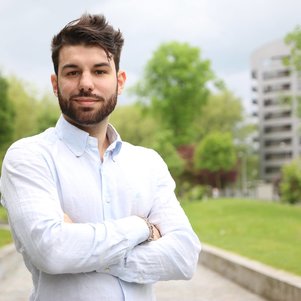
Giacomo Bandinu
Hamed Rastegarian
EngD candidate - Sanitary & Environmental Engineering
Hamed was born in Iran and raised in Shiraz, city of poems and gardens. He has done his BSc studies in Chemical Engineering at Shiraz University. He believes that the beauty of his hometown and its environmental challenges made him curious about the environmental sciences and the importance of water in human life. He always speculates about a solution to turn our generated waste into a useful product. These thoughts push him to go forward and take actions by developing concepts for solving local environmental challenges, which directed him to start his professional career. In 2012 besides his studies, he started to work as a lab technician in the water lab of Shiraz University Environmental Research Center. Two years after he obtained a researcher position in the research center focusing on the feasibility studies of cultivating local green microalgae in different industrial and urban wastewater aiming at pollutant removal, nutrient recovery and biofuel production.
He finished his BSc in 2014 and continued his research for one more year in the research center. However, his ambition for acquiring more in-depth knowledge regarding environmental and water sciences led him to go abroad. In 2015, he moved into Belgium to do his MSc studies in Water Resources Engineering at KULeuven University. During his MSc education, he found his way again by discovering a local environmental challenge in Flanders to work on his MSc thesis. Together with KULeuven University, AQUAFIN and VMM, he developed a dynamic model to monitor the fate and behavior of micro-pollutants in waterbodies.
In 2018 after the graduation from KULeuven, he moved to the Netherlands to pursue his next career. Few weeks after living in Netherlands, he noticed the EngD advertisement in ZERO BRINE project. It was like a dream for him, an academic career focusing on his area of interest, wastewater treatment, resource recovery, circular economy and sustainability. Two days after, he applied for the position and he was accepted. ZERO BRINE – re-designing the value and supply chain of water and minerals. In fact, it is an advanced circular economy approach to reduce industrial saline wastewater streams by recovering and reusing the minerals and water from the brine generated in process industries, thus ‘closing the loop’ and improving the environmental impacts of production. ZERO BRINE includes 22 partners from research institutes, SMEs, construction companies, and end-users from 10 countries. ZERO BRINE integrates innovative technologies to recover water and minerals of sufficient purity and quality for good market value.
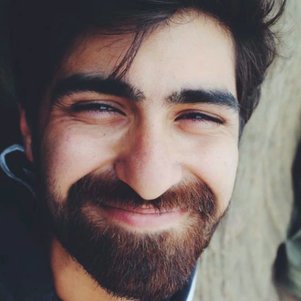
Hamed Rastegarian
Jeroen Wegdam
EngD candidate – Structural & Railway Engineering
Jeroen did his bachelor and master of Civil Engineering at the TU Delft. After doing a bachelor thesis at the subject of railway settlements, he followed a custom master curriculum with courses relevant for Railway Engineering. The master thesis project was on the topic of the design of common crossings in railway turnouts. As a side project he investigated application of design principles during maintenance, in order to restore smooth vehicle behavior after rail wear/deformation.
In April 2019 he started with an EngD project at TU Delft, as commissioned by ProRail (the owner of most Dutch railway tracks). ProRail’s goal of the project is to make better use of measurements that are gathered from inspection trains. These trains use LIDAR scanners to measure the rail shape in 3D. Jeroen’s task is to automatically generate maintenance advice, mainly based on this data. To do so, he will use Python to develop tools that can be implemented at the end of the project. The project also incorporates site visits and consultation with relevant companies, to constantly couple theory and practice.
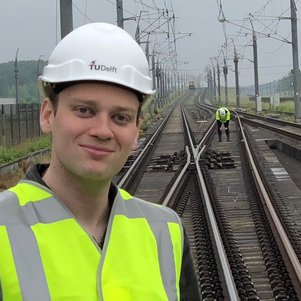
Jeroen Wegdam
Hala Alhamed
EngD candidate - Sanitary Engineering
I hold a Bachelor of Science in Civil Engineering of the University of Damascus and a Master in integrated water resources management (I.W.R.M) from the Institute for Technology and Resources Management in the Tropics and Subtropics (ITT) of the Cologne University of Applied Sciences in Germany and the University of Jordan. I have more than 15 years of working experience in water infrastructure management in several countries in the Middle East including; Bahrain, Egypt, Jordan, Lebanon, Syria and Turkey. I am a member of the Expert Group on Water, Energy and Food Security Nexus under United Nations' Economic and Social Commission for Western Asia, UN ESCWA.
In The Hague I founded Work4Water in 2016. With this company, I soon had clients such as the UNEP-DHI Partnership Center on Water and Environment, the municipality of The Hague, the Rijksdienst voor Ondernemingen (RVO), and the International Water Association (IWA). I am also a board member of the international department of the Royal Institute of Engineers (KIVI) and ambassador of Future Proof The Hague.
Now I am working on my EngD at the Delft University of Technology (TU Delft) and Waternet in the field of Integrated Urban Water Asset Management.
Design project
Urban water infrastructure is one of the main drivers behind economic development in cities. Maintaining this infrastructure is complex and capital intensive process due to its vast quantity, system behavior and long lifespan. Thus, wrong decisions in asset replacement in part of the system will have negative impact for decades on the whole system and will considerably increase the asset management costs.
There have been several attempts to develop a generic framework to support urban water asset management. These works are classified into four levels based on how they structure the asset management problem; governance, management, risk assessment and technical levels.
The previous works focused only on finding engineering solutions to sewer assets problems while ignoring the social aspect of the sector, which is the interaction of a large number of stakeholders with multiple and sometimes conflicting objectives.
I am working on designing a tailor-made framework for integrated urban water risk-based asset management, and structure the asset management planning problem from the stakeholders perspectives using operational research methods. The decision support framework will support water utilities to determine and quantify the key criteria for comparing asset management strategies and will be demonstrated in sewer asset in Waternet.
The design process starts with structuring the problem by interviewing stakeholders, identifying their objectives and incorporating uncertainty in decision making by modelling their preference
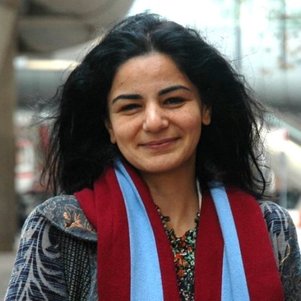
Hala Alhamed
Paul le Lan
EngD candidate – Structural & Railway Engineering
I come from Paris, France. I studied one year in French Preparatory Class for high level French Engineering Schools (LyceeMichelet). I then studied Material Science for 5 years at the Universite de Technologie de Troyes (Master 2 in Material Science and engineering) to graduate as a French engineer. During those studies, I studied quantum mechanic at the university of Lund for my semester abroad. I performed my Master Thesis at the ARCNL, in Amsterdam Science Park, working on DUV interation with metallo-organic compounds.
I have globally acquired during my studies and my working experiences knowledge about materials (mainly related to structural engineering and photonics), nanotechnologies, civil engineering (road and railway environment) and data management and analysis.
Beside my professional experiences, I am a amator beer brewer as well as interested by car and motorbikes mechanics.
